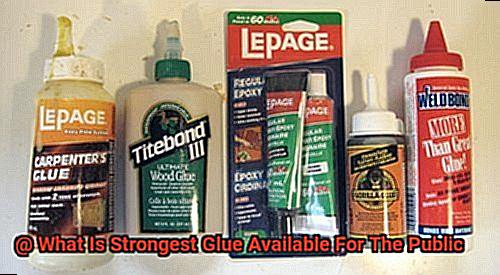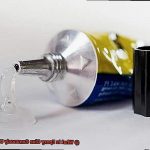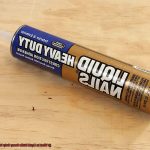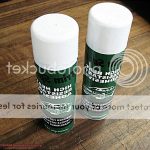Ever found yourself in a sticky situation and wondered what the toughest glue out there is? Well, you’re in for a treat because today we’re uncovering the ultimate adhesive powerhouse available to the public.
From rescuing shattered pottery to constructing mind-blowing DIY wonders, we all know how crucial it is to have a trusty glue by our side. Whether you’re fixing up your favorite vase or crafting a masterpiece from scratch, understanding the various types of glue and their incredible strengths is key.
So, gear up with your safety goggles and let’s plunge into the mesmerizing world of adhesives.
Epoxy Adhesive: Overview and Benefits
Contents
- 1 Epoxy Adhesive: Overview and Benefits
- 2 Cyanoacrylate (Super Glue): Overview and Benefits
- 3 Polyurethane Adhesive: Overview and Benefits
- 4 Structural Adhesives: Overview and Benefits
- 5 Considerations When Selecting the Strongest Glue
- 6 Tips for Successful Application of Glues
- 7 Common Uses of the Strongest Glues
- 8 Conclusion
When it comes to choosing the right glue for your project, strength and durability are crucial. Epoxy adhesive, renowned for its exceptional bonding capabilities, stands as a top contender in the world of adhesives. In this article, we will delve into the overview and benefits of epoxy adhesive, shedding light on why it is favored in various industries.
Unbreakable Bonds:
Epoxy adhesive’s secret lies in its unique two-part composition. When the epoxy resin and hardener are combined, a chemical reaction occurs, resulting in a hardened adhesive that forms an unbreakable bond with surfaces. This remarkable bonding ability makes epoxy adhesive a go-to choice for professionals in construction, automotive, aerospace, and electronics industries.
Strength That Withstands:
One of the standout benefits of epoxy adhesive is its high strength. It effortlessly bonds materials like metals, plastics, ceramics, and composites together, creating a connection that can withstand immense pressure and stress.
Defying Harsh Environments:
Epoxy adhesives boast excellent resistance to chemicals, heat, and moisture. This makes them ideal for applications where the bond needs to endure harsh conditions. Whether it’s sealing electrical components or securing structures exposed to extreme temperatures, epoxy adhesive rises to the challenge.
Versatility Personified:
The versatility of epoxy adhesive knows no bounds. It can be used for a myriad of purposes, from bonding materials to filling gaps and sealing joints. Its adaptability even extends to being used as a coating or encapsulant for added protection.
Longevity Ensured:
Epoxy adhesives have an impressive shelf life and can be stored for extended periods without losing their effectiveness. This ensures that you always have a reliable solution on hand for your bonding needs.
Tailored Solutions:
To meet specific application requirements, epoxy adhesives can be formulated with desired properties such as flexibility or electrical conductivity. This customization makes them suitable for specialized applications, further enhancing their appeal.
Considerations:
To achieve optimal results with epoxy adhesive, proper surface preparation is crucial. Surfaces must be clean, dry, and free from any contaminants or oils to ensure a strong and lasting bond. Additionally, epoxy adhesives have a relatively longer curing time compared to other types of glue, necessitating patience during the drying process.
Cyanoacrylate (Super Glue): Overview and Benefits
Say goodbye to waiting around for glue to dry and say hello to cyanoacrylate, also known as super glue, the adhesive superhero that forms a strong bond in seconds. This fast-acting adhesive is a game-changer in the world of glues, with its quick-drying nature and exceptional bonding properties.
The first thing that sets cyanoacrylate apart is its rapid curing time. No more twiddling your thumbs while waiting for glue to dry. Cyanoacrylate gets the job done in a flash. Whether you’re fixing a broken household item or working on a craft project, this glue will save you precious time and get you back to enjoying the things you love.
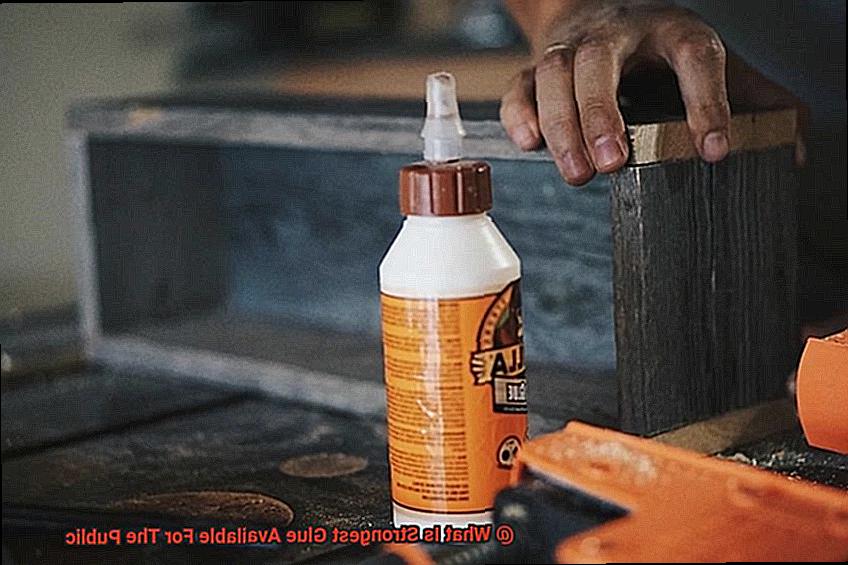
And let’s talk about strength. Once cyanoacrylate is fully cured, it forms an incredibly strong bond that can withstand all sorts of stress and strain. It’s like having a bodyguard for your projects. Trust this glue to hold together metal parts or fix heavy objects without breaking a sweat.
But wait, there’s more. Cyanoacrylate is also incredibly versatile. It can bond a wide range of materials, from plastics and wood to ceramics and rubber. It’s like having a glue that can do it all. No matter what industry you’re in or what project you’re working on, cyanoacrylate has got your back.
And did I mention it’s resistant to water and temperature fluctuations? This glue can handle being submerged in water without losing its adhesive properties. So go ahead and fix that leaky pipe without worry. And when it comes to extreme temperatures, cyanoacrylate doesn’t flinch. It won’t weaken or deteriorate under the harshest conditions.
Now, I have to give you a heads up. While cyanoacrylate is amazing, it does require some caution. Because it dries so quickly, you need to work efficiently and carefully to get everything aligned before the adhesive sets. And remember, this glue can bond skin and eyes together if not handled properly, so make sure to wear protective gloves and goggles when using it.
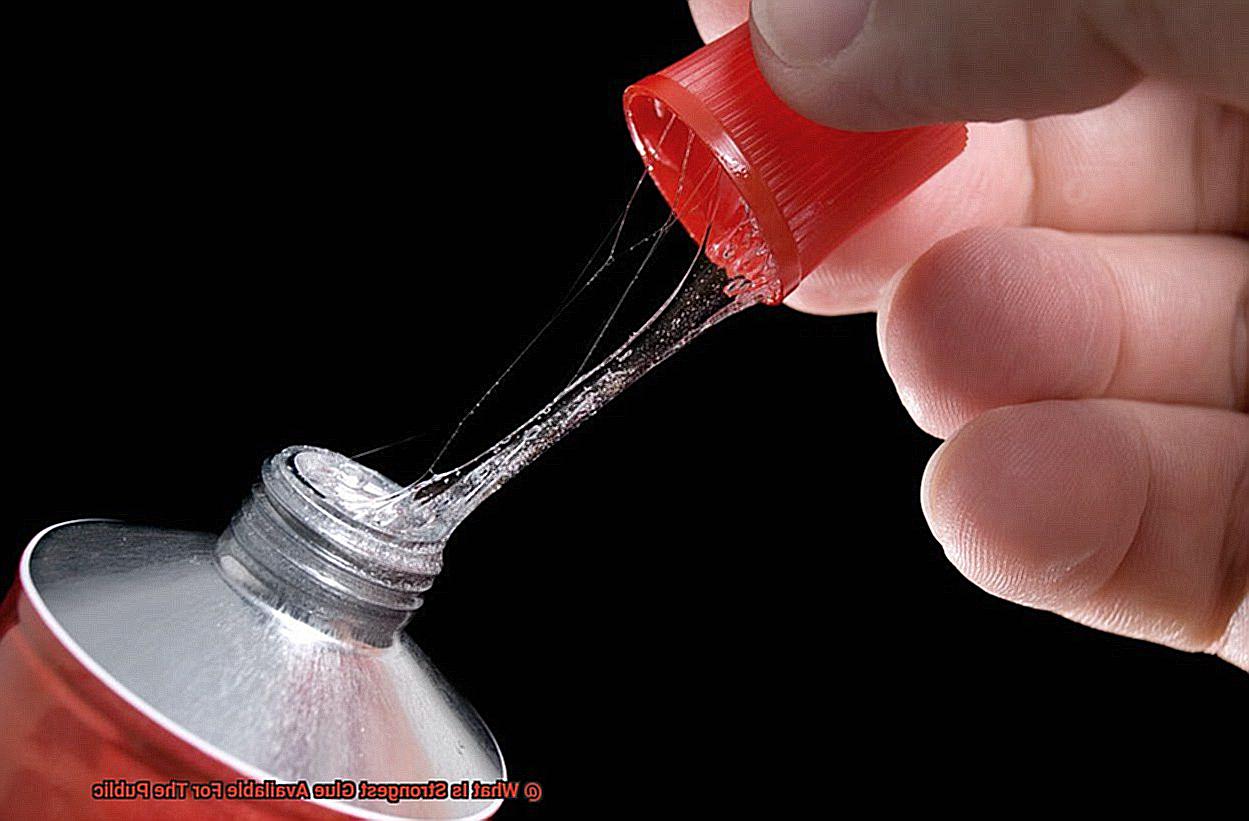
Polyurethane Adhesive: Overview and Benefits
When it comes to adhesive superheroes, none can match the power and versatility of polyurethane adhesive. It reigns supreme in various industries and applications, thanks to its exceptional strength and unmatched capabilities. From construction projects to automotive repairs and DIY woodworking ventures, polyurethane adhesive is the go-to choice for achieving unbreakable, long-lasting bonds.
So, what sets polyurethane adhesive apart from other adhesives? Let’s delve into its comprehensive overview and myriad benefits.
First and foremost, polyurethane adhesive is made up of a polymer compound that undergoes a chemical reaction when exposed to moisture. This reaction creates an impervious bond that can withstand heat, water, and chemicals. It’s the perfect adhesive for applications where durability is paramount. Whether you’re bonding wood, metal, plastic, glass, ceramic, or even concrete, polyurethane adhesive is the versatile glue that does it all.
But that’s not all – the standout feature of polyurethane adhesive lies in its ability to brave temperature extremes. From blistering summers to freezing winters, this adhesive remains unyielding and intact. No matter the weather conditions, you can trust polyurethane adhesive to keep your projects securely bonded.
Flexibility and elasticity are also in its repertoire. Polyurethane adhesive can absorb shock and vibrations with ease, making it an ideal choice for bonding materials subjected to movement or stress. Furthermore, its excellent gap-filling properties ensure a secure bond by seamlessly filling irregularities or gaps between surfaces.
But wait – there’s more. Polyurethane adhesive boasts incredible resistance to moisture and chemicals. It fearlessly handles exposure to water, oils, solvents, and countless other chemicals without deteriorating or losing its bond strength. So whether you’re working in wet or corrosive environments, rest assured that polyurethane adhesive has your back.
However, it’s worth noting that patience is essential when using polyurethane adhesive. Unlike some quick-drying adhesives, this one requires time to fully cure. It often demands several hours, and at times, even days to ensure optimal bonding strength. So plan your projects accordingly and give it the time it deserves for a job done to perfection.
Structural Adhesives: Overview and Benefits
If you’ve ever marveled at how things stay together, get ready to be amazed by the benefits these adhesives bring to the table.
Let’s start with their superpower: even stress distribution. Unlike traditional screws and rivets that create stress points, structural adhesives provide a continuous bond that spreads the load evenly. This means fewer weak spots and a stronger overall joint. Imagine a seamless connection that can withstand immense pressure and keep things intact.
But wait, there’s more. Structural adhesives are like matchmakers for different materials. They can bond metal to plastic, metal to glass, and even dissimilar materials with ease. This opens up a whole new world of possibilities for lightweight and durable structures. Think of it as creating a power couple that combines the best qualities of each material.
Speaking of durability, these adhesives have a resistance to environmental factors that would make Superman jealous. They can handle extreme temperatures, moisture, and chemicals without losing their bonding strength. No matter what Mother Nature throws at them, they stand strong and hold everything together.
But the benefits don’t stop there. Structural adhesives can also help reduce weight in assemblies by eliminating bulky mechanical fasteners. This means improved fuel efficiency in transportation applications and increased payload capacity in aerospace applications. Saving the planet while bonding things together? It’s a win-win situation.
And to top it all off, structural adhesives offer design flexibility like no other. They come in various forms such as liquids, pastes, films, and tapes, making it easy to apply them in complex shapes and hard-to-reach areas. It’s like having your very own adhesive superhero tailor that can mold itself to fit any design requirement.
Considerations When Selecting the Strongest Glue
Choosing the right glue is essential for creating strong and durable bonds in your projects. With so many options available, it’s important to consider several factors to ensure you select the strongest glue for your specific needs. In this guide, we will explore the key considerations that will help you make an informed decision.
Consideration #1: Material Compatibility
Different glues are designed to bond specific materials together. Ensure that the glue you choose is compatible with the materials you are working with, such as wood, metal, plastic, or fabric. Check the label or manufacturer’s recommendations to determine if the glue is suitable for your project.
Consideration #2: Bond Strength and Durability
Assess the strength and durability requirements of your project. Some glues offer temporary bonding, while others provide permanent or long-lasting adhesion. Consider factors such as load-bearing capacity, resistance to impact or vibration, and the need for flexibility or rigidity in the bond.
Consideration #3: Environmental Conditions
Take into account the environment in which the glue will be used. Some glues may not perform well in extreme temperatures or high humidity. If your project will be exposed to moisture, consider a waterproof adhesive. Likewise, if you need a bond that can withstand heat or cold, choose a glue that is specifically designed for those conditions.
Consideration #4: Application Time and Curing Speed
Consider how quickly you need the bond to form. Some glues have a quick initial tack but require additional time to fully cure and reach maximum strength. Others may have a slower initial bond but offer faster curing times. Assess your project’s timeline and select a glue that aligns with your requirements.
Consideration #5: Special Requirements
If your project has specific requirements, such as being food-safe, resistant to chemicals, or flexible, choose a glue that meets those needs. Look for glues that are labeled or marketed as providing the desired properties to ensure the bond will perform as expected.
Consideration #6: Ease of Use
Consider your level of experience and the ease of use of the glue. Some glues require special tools or techniques for application, while others are more user-friendly and suitable for beginners. Choose a glue that matches your skill level and comfort in working with adhesives.
Tips for Successful Application of Glues
One of the key ingredients for success is choosing the right glue and applying it correctly. In this article, we will explore some essential tips to ensure that your glue bonds are not only strong but also long-lasting. Let’s dive in.
Clean Surfaces: The Foundation for a Strong Bond
Before applying any glue, make sure to thoroughly clean the surfaces you will be bonding. Dust, dirt, grease, or other contaminants can weaken the bond and compromise its strength. Imagine trying to build a solid foundation on rocky ground – it’s bound to crumble. Use a mild detergent or rubbing alcohol to wipe away any impurities and create a clean, stable surface for the glue to adhere to.
Use the Right Amount of Glue: The Goldilocks Principle
Finding the right balance is crucial when it comes to gluing. Applying too little glue may result in weak bonding, while using too much can lead to a messy and excessive squeeze-out. It’s like trying to thread a needle with either too short or too long a thread – it just won’t work properly. Follow the manufacturer’s instructions to determine the optimal amount of glue for your project. This ensures that you achieve maximum bonding strength without wasting any adhesive.
Spread Evenly: The Secret to Success
For a strong and reliable bond, spread the glue evenly across the entire surface. Whether you use a brush, spatula, or even your finger (if suitable for the type of glue), ensure that the adhesive is applied in a uniform layer without any gaps or lumps. Think of spreading butter on toast – you want an even layer that covers every nook and cranny. This ensures maximum contact between the surfaces and enhances the bonding strength, creating a bond that can withstand the test of time.
Allow Sufficient Drying or Curing Time: Patience is Key
Different glues have different drying or curing times, and it’s crucial to be patient and allow the glue to fully dry or cure as per the manufacturer’s instructions. Rushing this process can compromise the bond’s strength and durability. It’s like trying to take a cake out of the oven before it’s fully baked – it’s bound to collapse. So resist the temptation to rush and give your glue ample time to set, ensuring a strong and reliable bond that will stand up to whatever you throw at it.
Common Uses of the Strongest Glues
Glue may seem like a simple tool, but it plays a vital role in various industries and everyday life. In this blog post, we will delve into the incredible world of the strongest glues available to the public. From construction and automotive repairs to arts and crafts and even medical applications, these adhesives are true game-changers.
Construction and Woodworking:
Industrial-strength adhesives find their place in construction and woodworking projects. Seamlessly bonding materials like metal, wood, and plastic, these glues create sturdy joints that can withstand the test of time. Whether you’re building a new deck or crafting custom furniture, these glues ensure your creations stay intact.
Automotive Repairs:
Fixing broken parts or bonding components together in the automotive industry calls for strong glues. These adhesives provide a reliable and long-lasting fix, ensuring your vehicle stays in top-notch condition.
Manufacturing Industry:
In the manufacturing industry, strong glues are essential for assembling products. From electronics to household appliances, these adhesives securely bond various materials together, ensuring the final product is durable and reliable.
Arts and Crafts:
Artists and crafters rely on strong glues to bring their creative visions to life. Whether attaching heavy or fragile materials, these glues provide a strong bond that withstands the test of time. From jewelry making to sculpture projects, the possibilities are endless.
Household Repairs:
Say goodbye to broken furniture pieces or weak spots in ceramics and appliances. Strong glues are perfect for repairing household items, extending their lifespan and saving you money on replacements.
Medical Applications:
Strong glues also find their place in the medical field. In orthopedic surgeries, they can be used to bond bones together for faster healing. Additionally, dental procedures benefit from these adhesives as they help attach dental prosthetics securely.
Specialized Industries:
Industries like aerospace and marine require adhesives that can withstand extreme conditions. The strongest glues are designed to handle high temperatures, pressure, or exposure to water, making them indispensable in these specialized fields.
HNFwBz01jRU” >
Also Read: What is the Best Moldable Glue?
Conclusion
In conclusion, the world of adhesives offers a range of options when it comes to finding the strongest glue available for the public. One standout choice is epoxy adhesive, renowned for its exceptional bonding capabilities. Industries like construction, automotive, aerospace, and electronics rely on its unbreakable bonds and ability to withstand pressure and stress.
But let’s not forget about cyanoacrylate, also known as super glue. This powerful adhesive forms a strong bond in mere seconds. Its quick-drying nature and versatility in bonding various materials make it a true game-changer. Withstanding extreme temperatures and resisting water, it proves ideal for a wide range of applications.
Now, let me introduce you to polyurethane adhesive – the reigning champion of strength and capability. This adhesive can bond different materials together while withstanding heat, water, chemicals, and temperature extremes. Its flexibility and gap-filling properties take its appeal to new heights.
And then there are structural adhesives – the superheroes of even stress distribution. They effortlessly bond dissimilar materials while offering durability in extreme environmental conditions. Plus, they have the added benefit of reducing weight in assemblies.
When selecting the strongest glue for your project, consider factors such as material compatibility, bond strength and durability requirements, environmental conditions, application time and curing speed, special requirements, and ease of use.
Remember: proper surface preparation techniques are crucial. Apply the right amount of glue evenly across surfaces for strong and long-lasting bonds. And don’t rush – patience is key during the drying or curing process to achieve optimal results.
These incredible glues find applications in various industries including construction, automotive repairs, manufacturing industry projects, arts and crafts endeavors, household repairs big or small. They even play a role in medical applications such as orthopedic surgeries and dental procedures. Not to mention their importance in specialized fields like aerospace and marine industries.

